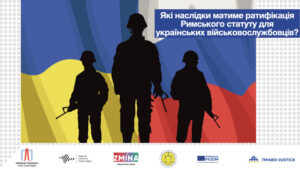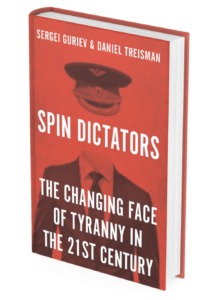Is Russia on the road to dictatorship? The immense pressures generated by the war and Western sanctions could eventually bring about domestic political change in Russia, but the conceivable scenarios point to destabilization rather than democratization, analysts suggest.
Two months into Putin’s war, the United States is at the center of an extraordinary campaign to foil him, casting the military conflict as a broader battle between democratic values and authoritarian might, The Times reports:
“It’s nothing less than a direct challenge to the rule-based international order established since the end of World War II,” Mr. Biden said in Warsaw last month. ….Through the administrations of three American presidents, the United States has sent mixed signals about its commitment to Ukraine. All the while, President Vladimir V. Putin of Russia watched Washington’s moves, biding his time.
“We’ve been all over the place on Ukraine,” said Fiona Hill, a Russia and Eurasia expert who advised the three administrations before President Biden. “Our own frames have shifted over time, and our own policies have shifted.”
“I think we need to re-articulate why Ukraine matters,” she said.
 There are myriad moral reasons why Russia should be ghettoized as a geopolitical Chernobyl, says Ivan Krastev (right), chair of the Centre for Liberal Strategies, Sofia, and permanent fellow at IWM Vienna. But treating Russia as a collective Putin will be a strategic blunder. Here is why, he writes for The Financial Times:
There are myriad moral reasons why Russia should be ghettoized as a geopolitical Chernobyl, says Ivan Krastev (right), chair of the Centre for Liberal Strategies, Sofia, and permanent fellow at IWM Vienna. But treating Russia as a collective Putin will be a strategic blunder. Here is why, he writes for The Financial Times:
First, this notion will primarily benefit the Russian leader. It unwittingly gives him the legitimacy to speak on behalf of the Russian people. Worse, it justifies his twisted narrative that the only Russia the west can tolerate is a weak or defeated one. If Russia is a geopolitical Chernobyl, the only reasonable strategy for any freedom-loving Russian is to bolt for the exits.
Second, an isolation strategy is probably self-defeating because it closes off interest in what is happening in Russia. It predicts that Russians’ failure to speak against the war means that the country will never change its attitude towards it. It will miss the fact that more than a few Russians support the war not because they support the regime but because they irrationally hope that the war will change the regime. Opposition-minded people hope that a defeat for the Russian army in Ukraine will bring Putin down. Many of his supporters relish the destruction of the despised, Putin-enabled offshore elite. In the words of a famous rock singer, after the west seized the property of the oligarchs, Russians finally became “equal like in 1917”.

ZMINA
Third, to bet on a world without Russia is ultimately futile because the non-western world, which may not favour the Kremlin’s war, is hardly eager to isolate Russia. Many see the current barbarism as disgusting but not exceptional. They practice value-free realism. Many of the states that US president Joe Biden invited to his Summit for Democracy have not placed sanctions on Russia.
The relationship between Russia’s state and society is growing increasingly totalitarian, adds Sabine Fischer, Senior Fellow with the German Institute for International and Security Affairs. This is no bolt from the blue: Vladimir Putin’s decision to go to war has absolutized the Russian power vertical, she writes:
The negation of rights has accelerated, propaganda is massive and the suppression of independent media, opposition and civil society comprehensive. This will not change as long as Putin remains in power. But in the medium term the immense pressure generated by the war and the Western sanctions could bring about domestic political change and see an end to Putin’s regime. The conceivable scenarios, however, point to destabilization rather than democratization.
 One way to prepare for those challenges will be to offer unbureaucratic support to democratic politicians, independent media and civil society actors who have left the country, and assist them in establishing exile structures, Fischer concludes. RTWT
One way to prepare for those challenges will be to offer unbureaucratic support to democratic politicians, independent media and civil society actors who have left the country, and assist them in establishing exile structures, Fischer concludes. RTWT
To be able to assist Ukraine, however, the West needs to comprehend the “logic” of Moscow’s actions, says Tomasz Kamusella, Reader in Modern Central and Eastern European History at the University of St Andrews in Scotland. Otherwise, the West and its associated international organizations will remain unable to predict Russia’s next move or responses.
 The Kremlin’s ideology of Russkiy mir is neo-imperial in character, as it involves the rebuilding of a Russian empire by reconquering some post-Soviet states, especially in Europe. Until 2022, such ideas were dismissed as the Kremlin’s toothless rhetoric and macho posturing. This cannot happen anymore, he writes for New Eastern Europe.
The Kremlin’s ideology of Russkiy mir is neo-imperial in character, as it involves the rebuilding of a Russian empire by reconquering some post-Soviet states, especially in Europe. Until 2022, such ideas were dismissed as the Kremlin’s toothless rhetoric and macho posturing. This cannot happen anymore, he writes for New Eastern Europe.
Four experts on Russian politics, mass protest and civil military relations discuss the impact of the invasion on Russian domestic politics (see above). Speakers: Adam Casey, University of Michigan; Graeme Robertson, University of North Carolina; Kathryn E. Stoner, Freeman Spogli Institute, Hoover Institution; Daniel Treisman, UCLA; Lucan Way (chair), CERES, University of Toronto.
In their new book, Spin Dictators, UCLA’s Treisman and Sergei Guriev contrast “fear dictators” with “spin dictators”, who kill fewer people, and deny it when they do, The Economist writes. The latter are now more common. Among autocrats who took power in the 1960s, roughly a quarter killed more than 100 dissidents a year; among those who took power in the 2000s, less than a tenth did.
Why Ukraine matters – “We’ve been all over the place on Ukraine,” #FionaHill, a @Brookings Russia & Eurasia expert told @nytimes “Our own frames have shifted over time, and our own policies have shifted…we need to re-articulate why Ukraine matters.” https://t.co/TF3ikInDd1
— Democracy Digest (@demdigest) April 25, 2022







